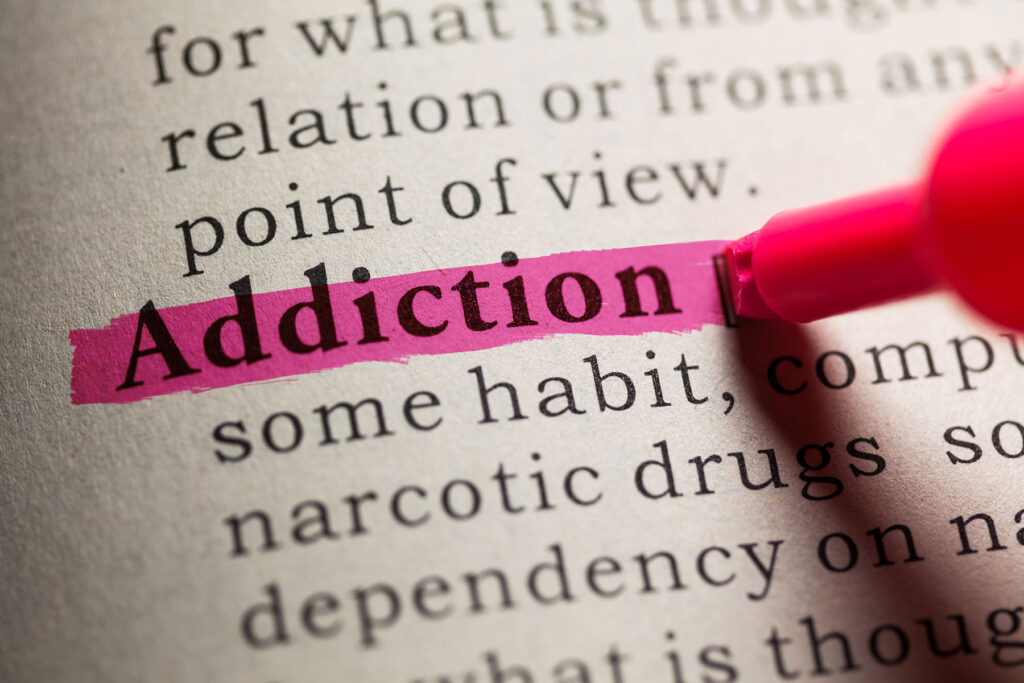Addiction is a condition that occurs when substance misuse and abuse becomes compulsive and continues even though there are harmful consequences associated with the behavior—but is addiction a medical disorder, a disease, or something else entirely? We answer this question and discuss addiction rehab programs and options.
What Happens in the Brain During Substance Abuse?
Many drugs affect the brain’s dopamine centers. Dopamine is known as the “feel good” chemical because it’s released when we have pleasant, rewarding experiences in typical daily life, such as exercising, eating, and volunteering. However, when a person ingests an addictive substance, they trick the brain into releasing large amounts of dopamine, which results in a feeling of euphoria.
It is this euphoric feeling that causes a person to become addicted. Essentially, they wish to keep feeling very good. As a person continues substance misuse, their brain becomes less able to produce or receive dopamine. Ultimately, the individual becomes unable to experience the same euphoria as before and can become depressed. Ultimately, they try to counter these negative feelings by increasing their substance use.
Is Addiction a Disease?
Although there are many different definitions as to what defines an addiction, there are also several organizations that characterize addiction as a disease. This is because addiction has the same characteristics of other diseases, including that it:
- Makes changes to the brain’s response in terms of self-control, stress, and rewards
- Disturbs a body’s organ—the brain
- Can lead to an increase in premature death
- Can lead to a decrease in quality of life
- Is preventable by avoiding poor choices and pursuing a healthy lifestyle
- Is treatable
Many addiction specialists consider addiction to be a disease because symptoms can recur and exist with periods of recovery.
Breaking Addiction’s Negative Stigma
Addiction stigma has much to do with the fact that this disease is largely misunderstood by the general public, who may not fully comprehend the intricate ways in which substance misuse affects the brain and overall well-being. It is important to recognize that a person who is addicted to a substance may exhibit a range of symptoms associated with mental and physical illness. These symptoms can include:
- Drastic weight loss
- Withdrawal from friends and family
- Changes in hygiene
- Increased aggression, irritability, and anger
- Secretiveness, lying, and defensiveness
While it’s unfortunate that addiction may be misunderstood by others, it’s worth noting that significant research has been conducted on this subject. As a result, there are numerous evidence-based treatment options available to individuals struggling with this disease.
These treatment options are provided by addiction rehab specialists. These individuals provide comprehensive and compassionate care, incorporating therapies such as:
- Cognitive-behavioral therapy
- Group counseling
- Medication-assisted treatment
By tailoring the treatment approach to each individual’s needs, these specialists aim to address the physical, emotional, and psychological aspects of addiction. In turn, this facilitates long-term recovery and provides ongoing support for a healthier and more fulfilling life.
Addiction Treatment Options
Addiction treatment can take many forms depending on the individual’s needs and circumstances. When someone enters a rehab center for the first time, they may undergo medically assisted detoxification to safely manage withdrawal symptoms. After detox, they may move onto outpatient treatment, where they visit the treatment facility for therapy sessions and support.
Alternatively, they may opt for inpatient treatment, where they live on-site and receive comprehensive care and treatment from a multidisciplinary team. Both outpatient and inpatient treatment options provide a supportive environment and evidence-based therapies to help individuals on their journey to recovery.
Get Help for Addiction in Tennessee at Apex Recovery
Apex Recovery is a leading provider of individual addiction treatment in the beautiful state of Tennessee. Our comprehensive approach includes not only individual therapy but also specialized family therapy, recognizing the importance of healing relationships in the recovery process.
We offer a wide range of treatment options that encompass both traditional and alternative therapies. This ensures a holistic approach to improving spiritual, physical, and emotional health. If you’re interested in learning more about our services and how we can support you or your loved ones, don’t hesitate to give us a call at (877) 881-2689 or reach out to us online. We are here to help you embark on a transformative journey toward long-lasting recovery.

